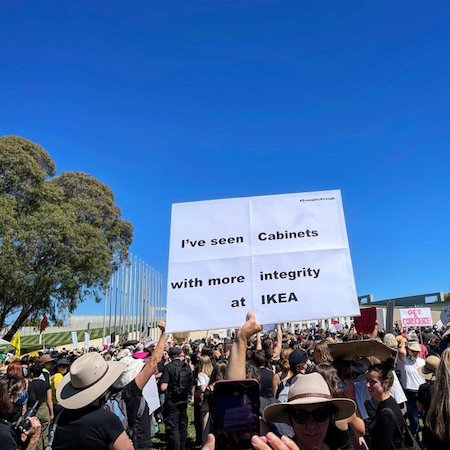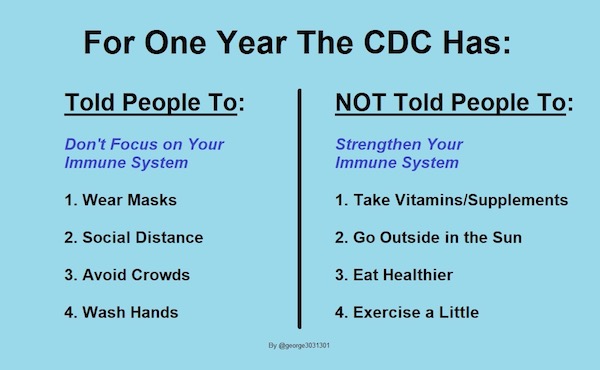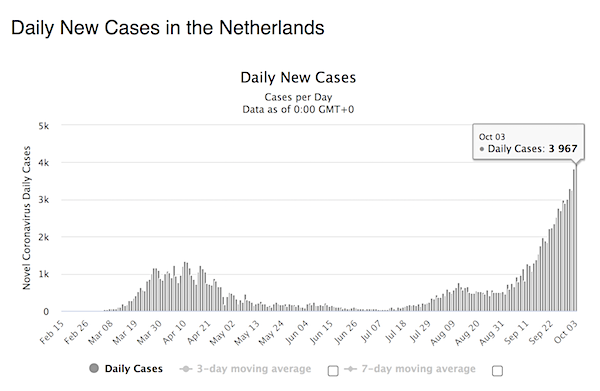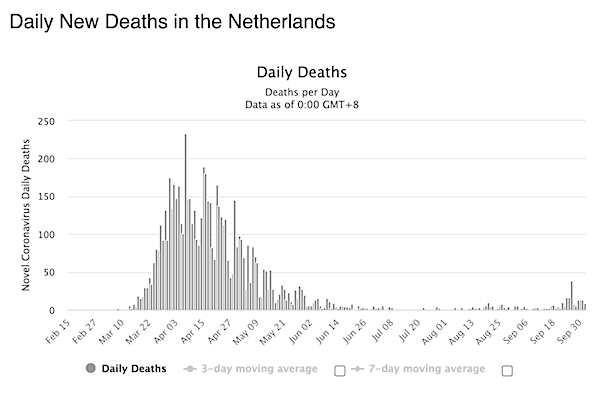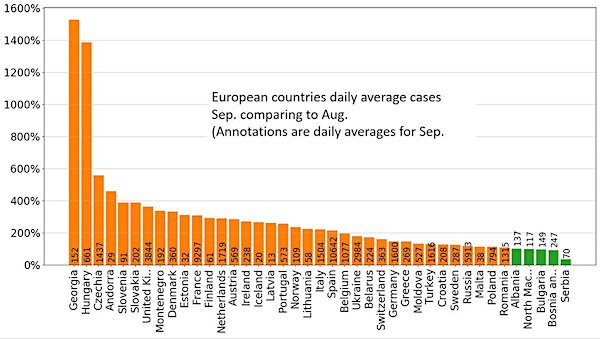
John William Godward Dolce Far Niente (Sweet Idleness, or A Pompeian Fishpond) 1904

One year into the continuing COVID emergency, it’s high time to ask questions about the “legal status” of various measures and restrictions applied by various governments- as well as their other policies. Having those questions asked out in the open is good for everyone, not least for the governments themselves. If only because a government doesn’t make law, it is only supposed to abide by it while governing.
Which means the law has to be tested by courts. That someone would have to start a court case to do this in these unusual and “extreme” times is already a step too far; courts should take that upon themselves (and I know, courts don’t usually do that). Whenever a government announces another measure or restriction, its legality should be tested immediately. It is not a good sign that this hardly appears to happen. The government itself should initiate the process.
Imagine if a court waits a year or more to issue an opinion on the measures, and finds -some of- them to be illegal. How do you explain that to people, as a government, or as a court? People who’ve lost their jobs, their savings, their businesses, and are then told it was all illegal to begin with?! Nobody should want that mess.
Much of what governments decide is presented as being justified by the term “emergency”. But this particular “emergency” has lasted for a year now, and you could begin by asking a court how long an “emergency” can and should be able to last. Also, what extra powers can a government claim just because it chooses to label something an emergency? Before you know it, it starts to feel like a dictatorship.
Applicable legislation will differ from country to country, but there is little doubt that in most western democracies, laws concerning the legal powers of a government will be quite similar. If only because they copied from each other all the time. Governments do all appear to think they have a lot of power, though, and I personally would like to see where that power is engraved in their respective laws, and what part of it is truly democratic.
A bit of an aside, something I’ve talked about multiple times, and something I think perhaps originates in legal overreach: Our societies appear to have become one dimensional (never a good idea) : governments act as if there is only one problem, COVID, and discard all others, cancers, mental health, economic bereavement.
Also one dimensional: the only response to COVID is a vaccine; all other possible responses are ignored. This is curious in a 3-dimensional world, though perhaps not in a one dimensional one. Still, even there too, the law must be tested.
Back to legal issues: Does a government have the legal standing to force millions of people not to work, millions of businesses not to open, millions of kids not to go to school? My answer would be: perhaps, but certainly never before they’ve exhausted every single other avenue to solve the problem they seek to solve.
And that is something no government I’ve seen has done. Still, what does the law say? If and when you, as a government, allow an emergency to last for a year, then what part of the blame for that falls on you?
For instance, none have attempted to boost the immune systems of their citizens, they’ve simply put facemasks on weak immune systems. But COVID is a disease that attacks weaknesses in the immune system. And we know most westerners have a vitamin D deficiency, especially in winter, which hugely weakens their immune systems. Still, governments declare month after month of lockdowns and measures without having provided adequate vitamin D, which is dirt cheap, to their citizens, and then tell them to go get vaccinated, or else.
And there’s more: Professor of Medicine Dr Peter McCullough says: “..the virus invades inside cells, so we have to use drugs that go inside the cell and work to reduce viral replication“. “The drugs that work within the cell and actually reduce viral replication are hydroxychloroquine, Ivermectin, doxycycline and azithromycin” Have you seen those drugs made available, let alone promoted, where you live?
You don’t even have to make vitamin D and ivermectin mandatory to make them work, people will take them voluntarily. Plenty studies say that boosting your vitamin D levels decreases your risk of getting infected with COVID as well as dying from it by 50% or more. And then you take it from there: things will add up: 50% now, becomes 50%+x next week, and so on. Who needs a vaccine at all? And that’s before you even mention ivermectin, of which Dr Pierre Kory said: “If you take ivermectin, you won’t get sick”. As in: end of story, end of problem.
Whether a government can make a vaccine mandatory is questionable to begin with. But a vaccine that hasn’t been approved, other than through an emergency authorization, and for which proper research won’t be completed for at least two-three years? What is the legal basis for that? On top of that, the Pfizer and Moderna vaccines are based on mRNA technology that has never before been tested on humans. How do you legally make those mandatory? How slippery is this legal scale, and how far have we already slid down it?
And then we want to issue vaccination passports to prove people have had a jab or two of these untested things? Look, they may well work, but we don’t know that, and we won’t for quite some time. But in the meantime we still want to curtail people’s freedom of movement for not getting an untested vaccine?
These questions have nothing to do with anti-vaxxers, if anything they’re about blind pro-vaxxers. And about the law. Go ask a judge, go ask the highest court in your land, what their respective laws say about this situation.
The following, sent to me by a friend, is from a Greek lady, Nelly Psarrou, who has a background in Political science and Law. She’s asking the questions in her country that everybody should ask in theirs. You can’t let a government absorb emergency powers without asking these questions. It is too dangerous.

Whether or not you get vaccinated, get informed!
1. Vaccination, like any medical action, requires citizen consent. Consent is not regarded as valid if it is not fully informed, nor “if it is the result of deceit, fraud or threat, or conflicts with the demands of decency” (Medical Code of Ethics, Greek law 3418/2005). Failing this, the consent is waived and the person/body who has exerted the pressure or extortion to vaccinate is subject to penal sanctions and/or civil damages in the event of harm.
2. Vaccination is not a prerequisite for the exercise of any other institutional requirement, such as education or otherwise recognized basic right such as the right to employment and free movement. Correspondingly, no private company has the legal authority to impose restrictions violating citizens’ constitutional rights. Discrimination and Stigmatization are forbidden (Universal Declaration on Bioethics and Human Rights, UNESCO). Moreover, imposition of a medical action in any manner constitutes torture and is illegal.
3. Non-consensual participation by citizens in medical research is specifically forbidden, as prescribed by the Nuremberg Code instituted following the trial of the Nazi-collaborator doctors. Any coercion of people to participate in research transforms them into experimental animals and amounts to a reintroduction of Nazi practices and crimes on a public health pretext.
The COVID19 vaccine has an emergency licence (not final approval), which means that research and clinical studies are still under way (they are to be completed in 2023)! It is INVESTIGATIONAL, as declared by the companies themselves, and any forced vaccination with it by any means (legal obligation, extortion, fraud) falls in the category of coercion in research, which is BANNED under numerous laws and international agreements and has penal and civil consequences.
4. As indicated by doctors and companies, the vaccines HAVE NOT BEEN STUDIED to determine whether they reduce viral infection or to ascertain the duration of immunity and/or the effects of their interaction with other drugs or vaccines. Therefore, neither are other people protected from infection by the virus, nor will restrictions be lifted – as is now announced.
5. The measures themselves which have been imposed are both illegal and unscientific. They are illegal in so far as they impose medical actions (e.g. the mask), they impose individual administrative measures restricting freedoms without individual legal mandate (Article 5 of the Constitution) and THEY ARE NOT EMERGENCY AND TEMPORARY (for example since June everybody talks about a second wave of viral infection, and this has already lasted for months).
The measures are unscientific in many ways. Specifically a) they ignore the strengthening of primary health care, which is demanded by all scientific specialists. b) they impose lockdown, which is classifiable, from a medical viewpoint, as a criminal policy (it does not reduce infections and it increases mortality from other causes, worsening health overall – mental illness, cancellation of programmed examinations and operations, c) they impose masks (which is a medical action) outdoors, which does not provide protection against the virus as they themselves assert: “they are a “symbolic measure”, a slogan which says MASKS EVERYWHERE! ) d) they focus on vaccination as the only solution, instead of including the existing possibility of effective treatment with pharmaceutical drugs.
6. From the moment that vaccinations started, serious side-effects have already been recorded, auto-immune reactions but also deaths, which are, however, attributed to underlying conditions. The provision of new vaccines stopped immediately, the official justification being the impossibility of production – which had just commenced. At the same time doctors working with the government as advisors are evidently in receipt of funding from the same companies that are producing the vaccines: that amounts to, and/or would amount to, “conflict of interest”. Finally, the Prime Minister has claimed falsely that vaccination is voluntary, yet as early as 25/2/2020 the Parliament had voted the relevant laws: they are simply not in a position yet to enforce them because they do not have the vaccines.
What is most important is that citizens are denied information and doctors of alternative persuasion are muzzled, ridiculed and hounded! The mass media have already been paid for spreading this disinformation, with the 40 million euros “for strengthening information on the Corona virus” and the writing off of 30 million euros of debt. And we know that information is the most precious value in a society of freely thinking citizens. This, informing our fellow human beings is the number one priority and a socially responsible action. Seek out the information and disseminate it freely.
1. For all the above, articles with data: www.nellypsarrou.com
2. The views of numerous specialists: Radio Crete (the programs of the journalist Sachinis (in Greek) https://www.youtube.com/user/984radio

As for point 6 and 7, I think it’s not very useful to claim doctors and media are being paid off, without linking to evidence you have of that. Stick with the legal issues if you can’t.
And the legal issues raised by Nelly Psarrou look strong. Time for a lawyer and a court.

We try to run the Automatic Earth on donations. Since ad revenue has collapsed, you are now not just a reader, but an integral part of the process that builds this site. Thank you for your support.

Support the Automatic Earth in 2021. Click at the top of the sidebars to donate with Paypal and Patreon.



